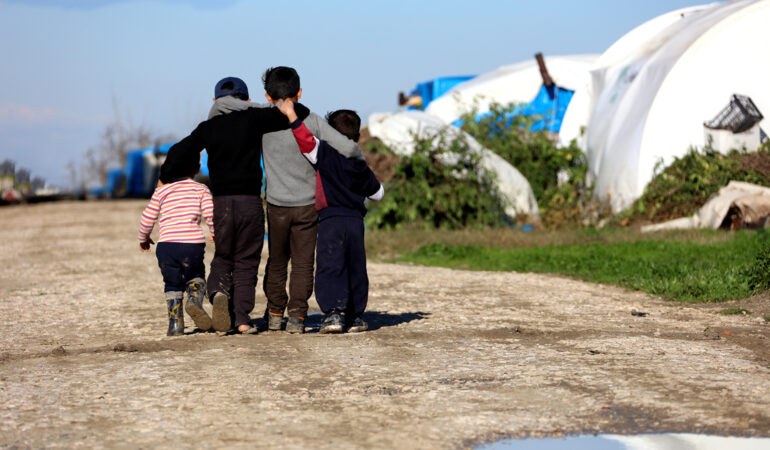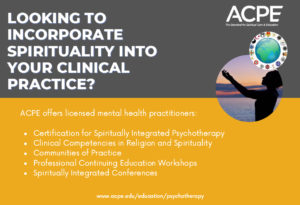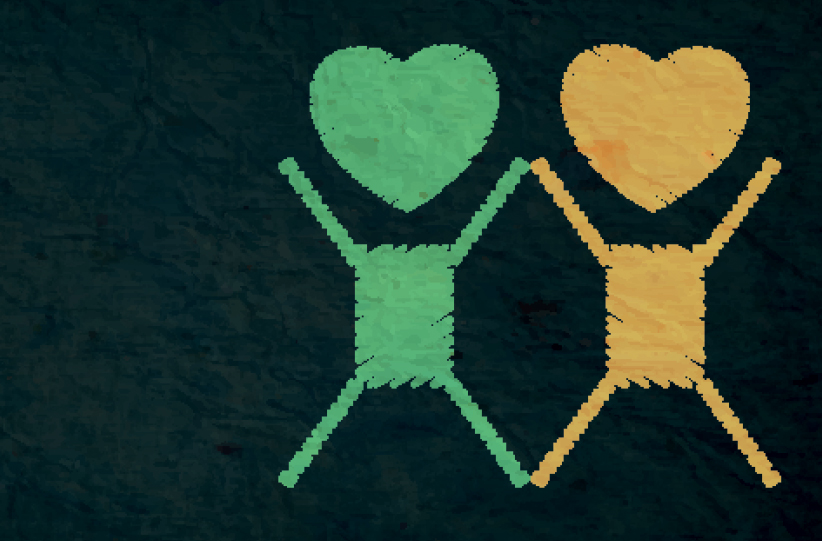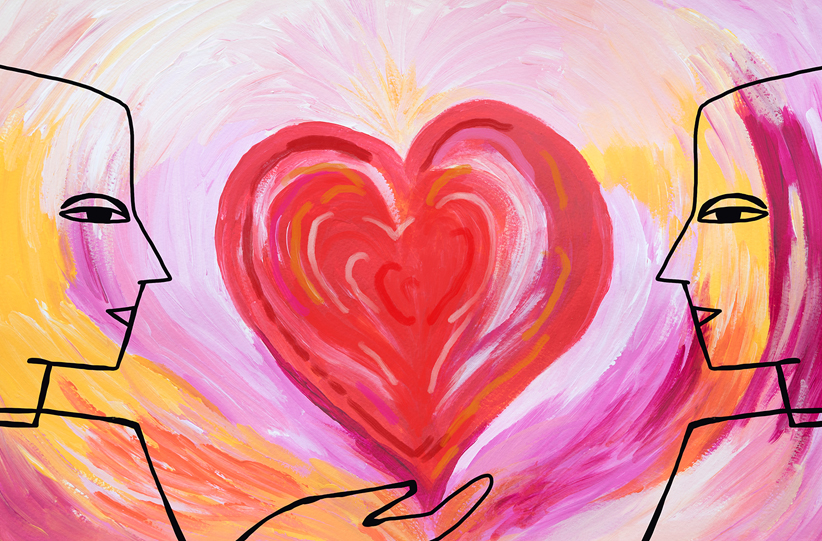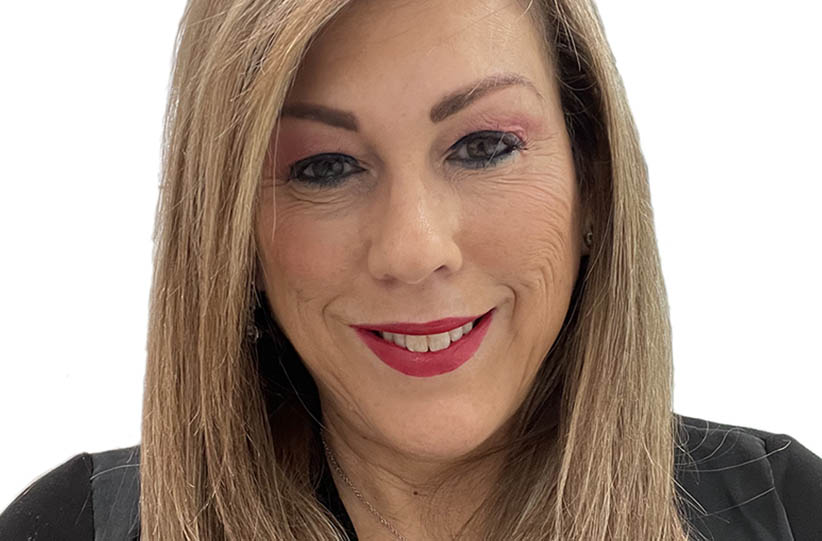Did you know … 41 percent of all forcibly displaced people are children?
Although children account for just 30% of the world’s population, they account for 41% percent of all those who have been forcibly displaced (United Nations Children’s Fund; UNICEF, 2022). In a number that is difficult to fathom, nearly 34.15 million children were forced to leave their homes and countries due to human rights violations (United Nations High Council for Refugees; UNHCR, 2021). Yet, another alarming fact: As of this writing, a third of children living outside their countries of origin are displaced; the proportion for adults is 1 in 20 (UNICEF, 2022).
Perhaps it goes without saying, but we also think it is worth repeating: Children are a vulnerable group. As such, they are at elevated risk in a way that is different from adults. According to the World Health Organization (2010), vulnerability is brought about by societal factors and the environment … Vulnerable groups in society will differ across countries, but in general, they share common challenges related to their social and economic status, social supports, and living conditions, including:
- Stigma and discrimination
- Violence and abuse
- Restrictions in exercising civil and political rights
- Exclusion from participating fully in society
- Reduced access to health and social services
- Reduced access to emergency relief services
- Lack of educational opportunities
- Exclusion from income generation and employment opportunities
- Increased disability and premature death. (p. 40)
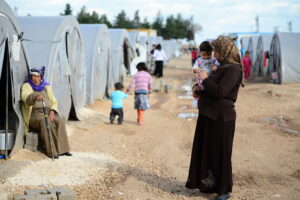
Unlike adults, children do not have the independence nor autonomy to “seek out a better life” in a country that is not their own. If you are a systemic family therapy professional working in the context of refugee support, the children you are likely to work with are living outside of their birth country through no choice of their own. Further, many of these children may be categorized as “unaccompanied minors,” i.e., present without parents or legal guardians. In this piece, we aim to highlight the migration experiences of refugee children and discuss some pertinent mental health issues and offer recommendations for family therapists working with displaced children.
Unaccompanied children are children who have been separated from both parents and other relatives and are not being cared for by an adult who, by law or custom, is responsible for doing so. Note that some States refer to these children as ‘unaccompanied minors’ in their legislation and policies; UNHCR uses the term unaccompanied children.”
The causes of separation from family are many and dire. For example, children in conflict-affected countries can become separated from family and loved ones due to death and/or kidnappings of family members. The cruel loss of families-of-origin and the often-confusing transition into new families (whether by foster or adoption) for these children compels us, as systemic therapists, to consider the unique needs of forcibly displaced children.
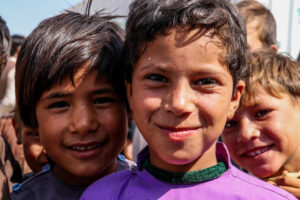
War atrocities are not partial to children
It is the nature of war to disrupt and destroy the developmental trajectory of families, but this is particularly so for young ones. Children can be physically attacked, psychologically tortured, and emotionally brutalized during conflict, without concession or consideration to their tender age. Physically, children are also at risk of being beaten, shot at and sexually assaulted. Female children are especially vulnerable to sexual assault and male children vulnerable to recruitment of inflicting violence on others. Both girls and boys are at risk of being recruited by warring groups during armed conflict. UNICEF (2021) has found that between 2005 and 2020, more than 93,000 children were verified as recruited and used by parties to conflict, although the actual number of cases is believed to be much higher. These children are at risk in ways that are both similar and different from adults. As children, they are used in exploitative ways, often as combatant soldiers, cooks, or are subject to sexual and gender-based violence (SGBV).
Psychologically and emotionally, in the midst of armed conflict or violent uprising, children may be forced to endure the witness of brutal attacks on their family members, including the kidnapping of parents, illness and death of siblings, and the massacre of their community members (Somo, 2020). One teenager recalled the following from his experiences in migration:
I was terrified. I didn’t know what was happening. I saw everyone running and I had no idea why. Everyone was screaming. When war broke out into my region, we were taken to a stadium; it was a soccer stadium. I stayed there about four days. There were so many people and lots of disease and massacring. Then things went bad to the very worst. The weather was awful. It was raining and blood flowed everywhere. We were swimming in blood; there were so many wounded. That has stayed with me; it won’t go away … At five, I had no idea what a massacre was. (Ampersand Film & Video Tape Productions, 2005, 00:10:53).
Following the death or injury of parents and siblings, some children will become orphans or separated children. Becoming a war orphan or a separated refugee child adds an additional layer of psychological distress and trauma. Orphans and separated children must often continue with forced migration by themselves or depend on the mercy of surviving neighbors or kind strangers. These children are often required to fend for themselves against violence, hunger, and harsh conditions in refugee camps. Where available, siblings can become the primary caretakers of others, accelerating the growth of young ones in a developmentally inappropriate manner. Although not every child will react in the same way, nor will all develop future psychological problems, research illustrates that the harmful effects of extreme adversity can be mitigated with a systemic response, including but not limited to community-based resources that strengthen psychosocial support and reduce risk.
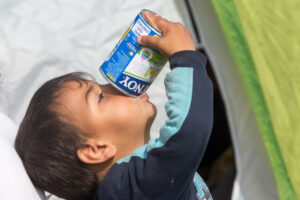
It is important for trauma-informed family therapy to focus with precision on these early childhood trauma experiences (ACEs) so that the developmental trajectory of these children can be transformed in ways that promote their well-being. Family therapists should consider a life course perspective when addressing the needs of refugee children. Events experienced during a refugee crisis will have a life course pathway and outcomes for the mental health and relational health of refugee children. As mental health practitioners, we know that an individual’s history and biography will have a long impact on their life patterns. The life-course perspective considers history and biography intersect to affect future life patterns of individuals. Therefore, we should explore the ACEs of migration trauma and explore the mechanisms (pathways) that may impact our clients.
Pertinent issues affecting refugee children who were born during the refugee crisis:
- They have never known peace (Somo, 2020).
- They have witnessed the continued brutalization of family members.
- They have never known the provision of basic needs.
- They have lived a life of constant migration.
In addition to mental health challenges, they may have severe neurodevelopmental difficulties.
Fear and anxiety as constant companions
During a refugee crisis, fear and anxiety are constant companions of children. Children fear for themselves, their loved ones, their homes, and communities. This fear is founded in a reality of what they have experienced and witnessed. For refugee children, fears such as death of a loved one, destruction of home, and the obliteration of communities can become reality (Somo, 2020). In other words, for refugee children, fears may become their reality—what they are concerned might happen to them may indeed eventually happen to them. See side note 2 for an example.
Example of a child living in a war zone and subsequently displaced:
A mother from Afghanistan reported that her child has nightmares because she fears for their home and lives: “she wakes up in the middle of the night crying. She has nightmares about tanks crushing us. That they will raze the house while we’re asleep, crushing us and no one will know” (Ampersand Film & Video Tape Productions, 2005, 00:06.25). A few weeks after the war had started, her house was indeed destroyed by the soldiers, confirming her fears.
Consistent with PTSD, these children may still carry fears and anxieties from the war while living in resettlement. Fears in children may be expressed through externalizing behaviors including self-isolation, fear of strangers, and antisocial behaviors such as aggression.
Aggressive behaviors are trauma reactions
Violence can also be a means for children to alleviate suppressed anger and distress. Exposure to prolonged violence and deep psychological trauma impacts the social behaviors of refugee children and their interaction with violence. In war, children are likely to be exposed to ongoing violence. They may be put in situations whereby they act violently to protect or defend themselves or their loved ones. Children are often forced to witness violence toward loved ones during ongoing, chronic armed conflict.
Extant literature illustrates a significant association between childhood physical, emotional, and sexual abuse and violent behaviors (Sarchiapone et al., 2009). Therapists must recognize aggressive behaviors in the context of their ecology. Witnessing atrocities in war, and living in the experience of immense violence, can have profound effects on childhood development. Systemic family therapists should attend to helping children deal with righteous anger and rage in a healthy manner in a non-judgmental way. These children may be confused and ashamed by their own behaviors because they are aware of the deep pain that violence can cause people. Family therapists should treat these children compassionately and in ways that can support them to understand their own violent behaviors.
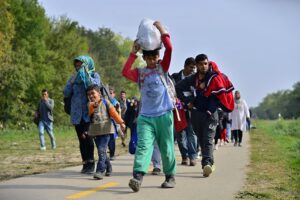
Refugee crises and forced displacement is a profound disruption for a child’s development. This kind of experience is likely to involve deep relational losses and mental health difficulties. Children are especially vulnerable because war situations disrupt various developmental stages including physical, emotional, psychological, and relational development. Children may experience long-lasting psychological difficulties because of their developmental inability to process the trauma. Relationally, refugee children will most likely lose a loved one during the crisis. The work of systemic therapists to help these children heal and rebuild healthy connections is a critical component for our practice, and a necessary requirement in our training.
By the end of 2021 approximately 89.3 million people worldwide were forced to flee their homes and/or country of origin due to violations against humanity.

Dr. Charity Somo, is an Educational Psychologist in South Africa. She earned her doctorate degree in Human Development and Family Science with an emphasis in Marriage and Family Therapy from the University of Georgia (U.S.) in May 2020. She completed her masters degree in Educational Psychology in 2014 and her undergraduate degree in Psychology in 2005 at the University of Pretoria (South Africa). Dr. Somo’s PhD thesis focused on Trauma-informed family therapy: Considerations for the systemic treatment of trauma in refugee communities, and she completed volunteer work with refugee families in the U.S. from 2014-2017. Specifically, she partnered with an agency helping displayed families to conduct psycho-educational mental health interventions to improve the mental health outcomes for resettling families. Dr. Somo has published peer-reviewed manuscripts in the areas of family therapy and the mental health of vulnerable populations. Dr. Somo is committed to helping vulnerable families and communities mobilize their ecological resilience towards better mental health outcomes. She is passionate about socially just-oriented therapy for marginalized communities, including refugee families and children with learning difficulties. Dr. Somo is currently a lecturer at the University of South Africa in the department of Psychology of Education.

Laurie L. Charlés, PhD, is a licensed marriage and family therapist and an AAMFT Professional Member holding the Clinical Fellow and Approved Supervisor designations. Over the past dozen years, she has delivered family systems training and supervision support in humanitarian contexts in multiple countries, including in Syria, Libya, and Lebanon; in the Central African Republic, DRC, Burundi and Cameroun, and in Guinea, West Africa during the EVD2014 outbreak response. Her most recent consultations have been as an international trainer for the United Nations Office in Vienna, working to deliver the UNODC Treatnet Family package to practitioners in Central, South, and Southeast Asia, and as a consultant to create a grassroots toolkit for practitioners engaged in Transitional Justice and Reconciliation Initiatives in Sri Lanka. She has twice been a Fulbright scholar: in 2017-2018 as a Fulbright Global Scholar Program Fellow in Kosovo and Sri Lanka, and in 2010 as a U.S. Fulbright Scholar in Sri Lanka. She holds a PhD in Family Therapy from Nova Southeastern University and an MA in International Relations from the Fletcher School of Law and Diplomacy. She is author/editor of seven books, most recently International Family Therapy: A Guide for Multilateral Systemic Practice in Mental Health and Psychosocial Support (2021, Routledge).
Ampersand Film & Video Tape Productions. (2005). After the outrage: Violence, trauma, and recovery.
Sarchiapone, M., Carli, V., Cuomo, C., Marchetti, M., & Roy, A. (2009). Association between childhood trauma and aggression in male prisoners. Psychiatry Research, 165 (1-2), 187-192. https://doi.org/10.1016/j.psychres.2008.04.026
Somo, C. M. (2020). Trauma-informed family therapy: Considerations for the systemic treatment of trauma in refugee communities. (Publication No. 27744657). [Doctoral dissertation, The University of Georgia]. ProQuest Dissertations & Theses Global.
United Nations Children’s Fund (UNICEF). (2022). Child displacement and refugees. https://data.unicef.org/topic/child-migration-and-displacement/displacement/
United Nations High Council for Refugees (UNHCR). (2021). Global appeal report 2021. https://reporting.unhcr.org/globalreport2021
World Health Organization (WHO). (2010). Mental health and development report. http://whglibdoc.who.intipublications/201 0/9789241563949 eng.pdf
UNHCR https://www.unhcr.org/children.html
Save the Children https://www.savethechildren.org/us/what-we-do/emergency-response/refugee-children-crisis/refugee-stories
Minimum Standards for Child Protection in Humanitarian Action. Sphere, 2019. https://spherestandards.org/resources/minimum-standards-for-child-protection-in-humanitarian-action-cpms/
Other articles
Did You Marry Your Sibling?
Perhaps you’ve never thought of it, but if siblings are relatively close in age, childhood was their first experience of living with someone of the same generation. In fact, the early childhood sibling relationship could be considered a laboratory for all subsequent (adult) relationships.
Karen Gail Lewis, EdD
Part 2 Working with the Sexual Cycle in Couples Therapy: Who, What, When, Where, Why, and How
In our first article, What Are Sexual Cycles and Why Work With Them, we presented an overview as an introduction to help couple clinicians work with the sexual cycle as intently as with the emotional cycle, and to forge the strongest bond in couples’ bodies, minds, and hearts.
Laurie Watson, PhD and George Faller, MS
Necessary Losses
I first read Judith Viorst’s book, Necessary Losses, when it came out in 1998, towards the early phase of my career. The idea that loss was necessary, not just an inevitable part of life, was somehow radical for me as a child of refugees, growing up with multiple losses of family, home, and history.
Silvia Kaminsky, MSEd
